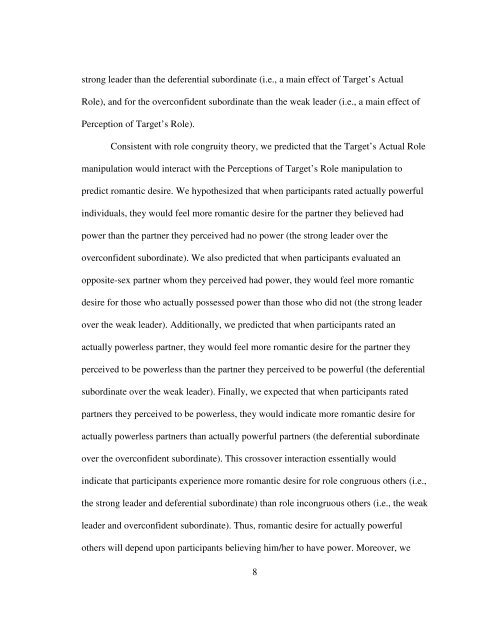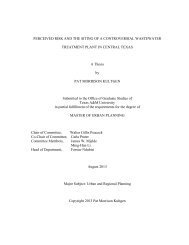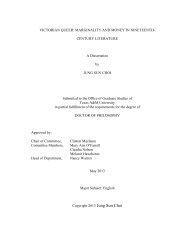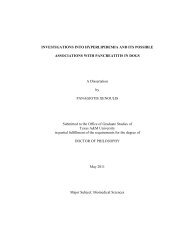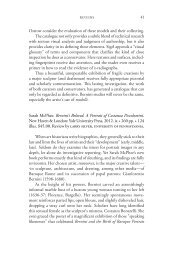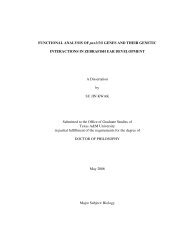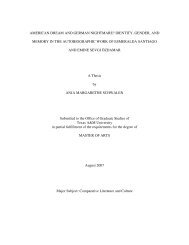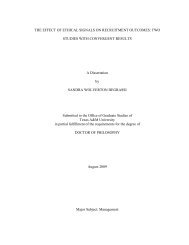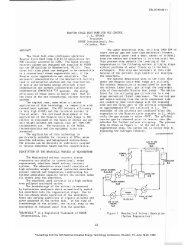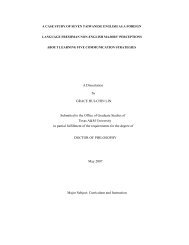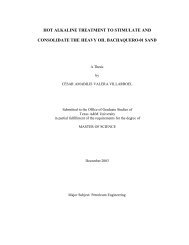A ROLE CONGRUITY ACCOUNT OF ROMANTIC ... - Repository
A ROLE CONGRUITY ACCOUNT OF ROMANTIC ... - Repository
A ROLE CONGRUITY ACCOUNT OF ROMANTIC ... - Repository
Create successful ePaper yourself
Turn your PDF publications into a flip-book with our unique Google optimized e-Paper software.
strong leader than the deferential subordinate (i.e., a main effect of Target’s Actual<br />
Role), and for the overconfident subordinate than the weak leader (i.e., a main effect of<br />
Perception of Target’s Role).<br />
Consistent with role congruity theory, we predicted that the Target’s Actual Role<br />
manipulation would interact with the Perceptions of Target’s Role manipulation to<br />
predict romantic desire. We hypothesized that when participants rated actually powerful<br />
individuals, they would feel more romantic desire for the partner they believed had<br />
power than the partner they perceived had no power (the strong leader over the<br />
overconfident subordinate). We also predicted that when participants evaluated an<br />
opposite-sex partner whom they perceived had power, they would feel more romantic<br />
desire for those who actually possessed power than those who did not (the strong leader<br />
over the weak leader). Additionally, we predicted that when participants rated an<br />
actually powerless partner, they would feel more romantic desire for the partner they<br />
perceived to be powerless than the partner they perceived to be powerful (the deferential<br />
subordinate over the weak leader). Finally, we expected that when participants rated<br />
partners they perceived to be powerless, they would indicate more romantic desire for<br />
actually powerless partners than actually powerful partners (the deferential subordinate<br />
over the overconfident subordinate). This crossover interaction essentially would<br />
indicate that participants experience more romantic desire for role congruous others (i.e.,<br />
the strong leader and deferential subordinate) than role incongruous others (i.e., the weak<br />
leader and overconfident subordinate). Thus, romantic desire for actually powerful<br />
others will depend upon participants believing him/her to have power. Moreover, we<br />
8


